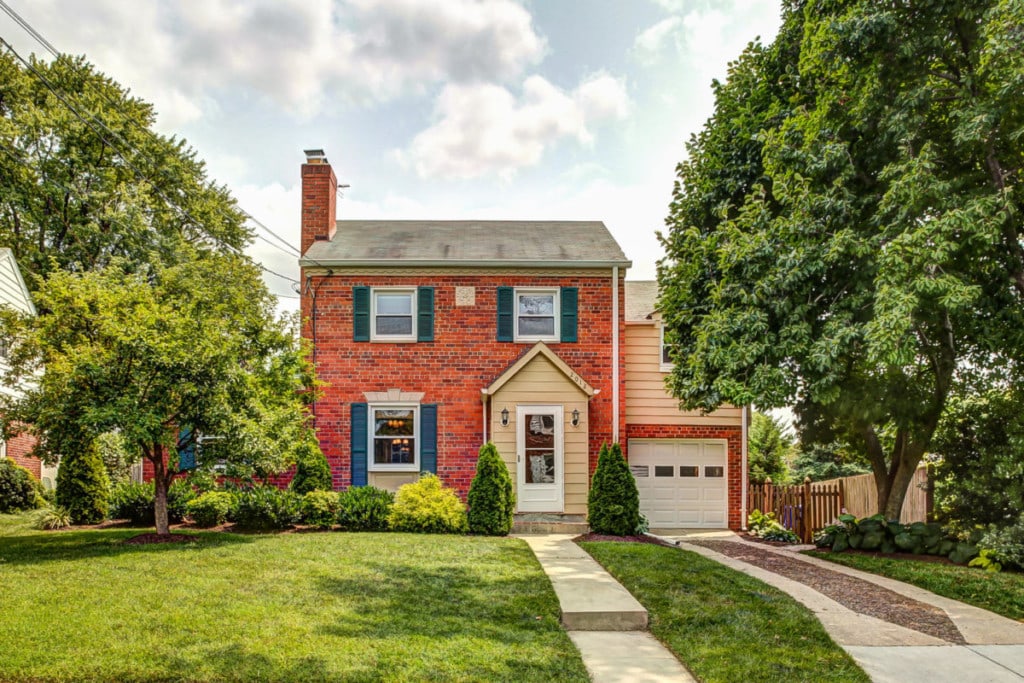When you choose to make improvements to your home, you probably think about design and decor options, paint colors, if the project will increase your property value, or if you’ll need to hire anyone to help you with the job. But there is another, extremely important consideration you need to make – whether or not you will need a building permit for your project.
It is essential for homeowners to know which projects require approval and the potential consequences for making changes without it. So before you start tinkering with electrical wiring or knocking down walls, make sure you understand the ins and outs of building permits and when they are required.

What is a building permit?
A building permit is a legal document issued from the local government that allows you to proceed with construction on a project. Building permits ensure that your home improvement or remodeling project meets important requirements that minimize potential health and safety risks, such as structural collapse, fire hazard, and electrical shock. Though obtaining a building permit may feel like a nuisance, it’s important to remember that the process is put in place to keep you and your family safe and to protect your investment
Renovating your home?
Find out what your home's worth, edit facts, and see the impact of home projects.
Home improvements that require a building permit
Renovating your home?
Although requirements vary from city to city, the general rule of thumb is that structural, electrical, plumbing, or mechanical work will require a residential permit. Here is a breakdown of the most common home improvement projects that require a building permit:
- Fencing installation or repair: When you install or repair a fence, it’s important to check with your city to see if there is a height restriction. Be sure to have a fencing contractor inquire about such restrictions to avoid having to cut the fence or take it down after installation.
- Window installations: When you install new windows that are bigger than your old windows, a permit is required to cut holes for them. This will also include cutting holes for skylights and new doors with windows. Be sure to reach out to a professional window installer who can acquire those permits.
- Plumbing and electrical work: When installing or replacing plumbing, you will likely need to submit a permit application. The same rule applies when installing or replacing electrical wiring, whether it’s an outlet, switch, ceiling fan, or overhead lighting. The cases where you won’t need a permit or inspection include smaller projects like repairs and light fixture installations.
- Structural changes: When you make any kind of structural changes to your property, the contractor will need to obtain a permit. This may include changes to the load-bearing walls, balconies, decks, porches, roofs, or foundation flooring.
- Heating maintenance: If you replace the water heater, the heating contractor you’ve hired to do the work will need to get a permit. Changes to the ventilation system, gas and wood fireplaces, and ducts will also require a permit. This does not include filter changes, motor lubrication, or equipment cleaning.
- Additions and remodels: Additions, new construction, remodels, repairs, replacements, and upgrades totaling $5,000 or more will require a permit. This will include detached structures like garages, sheds, and platforms. Exceptions to this rule include construction that’s less than 200 square feet, as well as painting, carpeting, and wallpaper.
Home improvement projects that don’t require a permit
There will be some home improvement projects that won’t require a permit, like small plumbing and electrical projects. Other projects you can do without a permit include:
- Painting and wallpapering
- Installing flooring like hardwood, carpeting, linoleum, or vinyl tile
- Minor electrical repairs
- Installing new countertops
- Installing or replacing a faucet
- Landscaping work
As mentioned, rules vary from region to region, so just because someone you know didn’t need a permit, doesn’t mean you won’t. If you’re unsure, contact your local building office and ask. It’s better to check beforehand, as the call could save you a lot of time, money, and stress.
Who gets the building permit?
If you hire a contractor to complete the project, they will most often obtain the permit. This is because, generally, the person or company who pulls the permit is also the person that is responsible for making sure the project is up to code. If you pull the permit yourself, you will be considered the contractor (in the eyes of your local government) and therefore, are liable if there is a construction problem.
Looking to save money on your mortgage?
What happens if you don’t get a building permit?
Unfortunately, homeowners often decide not to get a building permit as a way to save time and money. However, performing work on your home without the necessary approvals can put you in direct violation of city codes and regulations. Some possible consequences for not getting a permit include:
- If code enforcement authorities become aware of your violation, there can be fines and penalties that far exceed the cost of the original permit. In addition, government officials may require homeowners or contractors to tear out work and do it over.
- If you try to sell your house in the future, a home inspection will likely be conducted. The inspection may uncover any home improvement projects that were done without the proper permits. This can hold up a home sale and you may even have to undo the previous work and start again.
- In the unfortunate event of a major plumbing problem, fire, or structural collapse, if it’s discovered that the problem is the result of work that was done without a building permit, your homeowners’ insurance may not cover the damage.
Building permits can sometimes seem like a hassle. However, in many cases, getting a permit could mean giving up less than an hour of your time and spending a few hundred dollars. With all of the potential consequences at stake, you’re better safe than sorry. So if you need a building permit for your home improvement project, do yourself a favor and be sure to get one.


























 United States
United States Canada
Canada